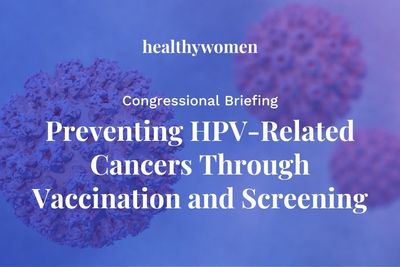Cancers caused by human papillomavirus (HPV), which include cervical, throat, head, neck, anal, penile and vaginal, remain a significant public health problem in the United States. Cervical cancer is the fourth most common cancer in women worldwide and an estimated 4,300 deaths from cervical cancer will occur in 2023 in the U.S.
Fortunately, in addition to essential screening and early treatment, there is an HPV vaccine that protects against the types of HPV that cause most cervical and other HPV-associated cancers. This vaccine is a major advancement since it offers primary prevention against the infectious agent that is the main cause of HPV-related cancers. Data demonstrates that HPV vaccination could prevent more than 90% of HPV-caused cancers.
Despite the demonstrated success of screening and the HPV vaccine, vaccination and screening rates still fall below national targets, and only worsened during the pandemic.
Listen to our Congressional Briefing: Preventing HPV-Related Cancers Through Vaccination and Screening to learn how the HPV vaccine, screening and early treatment are powerful tools to help end several cancers and what actions Congress can take to help achieve increased uptake of these modalities throughout the nation.
Read our senior policy advisor Martha Nolan’s op-ed from The Hill, “ We have the tools to prevent nearly all HPV-related cancers. We need the will.”
- Do Ethnicity and Race Put People at Higher Risk for Head and Neck Cancers? ›
- Understanding Your HPV Type and the Risks That Go With It ›
- Your Guide to HPV & Cervical Cancer ›
- Human Papillomavirus, HPV ›
- Ending the Stigma Around Cancers Caused by HPV ›


